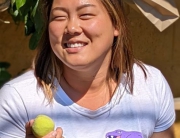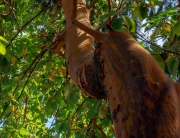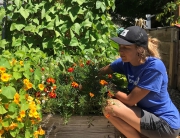The Truth and Reconciliation Commission’s (TRC) Report was published over 6 years ago, outlining 94 Calls to Action, meant to advance reconciliation and bridge the systemic gaps faced by Indigenous people, and yet we’ve seen minimal to no progress on it from our governments.
We can do better than our history.
Fernwood NRG is committed to learning about the Truth and Reconciliation Commission Calls to Action and we challenge our neighbourhood to do the same.
The following list was written by the First Nations Child & Family Caring Society of Canada as a guide to the TRC Calls to Action.
About Child Welfare…
1 We call on all governments in Canada to make sure Aboriginal kids can stay at home with their families by giving the right tools and education to the adults who work in child welfare.
2 We call on Canada to count how many Aboriginal kids are in care and think about better ways to help them be happy, healthy, and safe.
3 We call on all governments in Canada to make sure First Nations kids can get help through Jordan’s Principle.
4 We call on Canada to make a law about child welfare that helps Aboriginal people take care of Aboriginal kids.
5 We call on all governments in Canada to help parents in ways that respect their cultures and ways of life.
About Education…
6 We call on Canada to change the law that says it is okay for teachers and parents to hurt kids when they are not following rules.
7 We call on Canada to work with Aboriginal people to make sure that all kids in Canada are getting a fair education and chances for a job.
8 We call on Canada to give schools that teach First Nations kids enough money for those schools to give a fair education.
9 We call on Canada to tell us how much money they give to schools that teach First Nations kids and if Aboriginal kids are getting a fair education.
10 We call on Canada to make a law with Aboriginal people to make sure education for Aboriginal kids respects culture and language.
11 We call on Canada to help First Nations students go to college or university.
12 We call on all governments in Canada to make sure there is daycare for Aboriginal kids that respects Aboriginal ways of life.
About Culture…
13 We call on Canada to respect the rights of Aboriginal people. This includes their right to have their languages respected.
14 We call on Canada to make a law with Aboriginal people that preserves and strengthens Aboriginal languages.
15 We call on Canada to put someone in charge of promoting Aboriginal languages, and to make sure language programs are running properly. This person should be chosen with the help of Aboriginal people.
16 We call on universities and colleges in Canada to give people the chance to study in Aboriginal languages.
17 We call on all governments in Canada to let residential school Survivors take back their names that were changed in residential schools, without having to pay.
About Health…
18 We call on Canada to admit that the health problems of Aboriginal people are because Canada has not fixed the unfairness. Canada needs to fix the unfairness and respect health-care rights for Aboriginal people.
19 We call on Canada to work with Aboriginal people to set goals to ensure Aboriginal people are healthy, happy, and safe.
20 We call on Canada to respect the health needs of all Aboriginal people, no matter where they live in Canada.
21 We call on Canada to address the hurt caused by residential schools by helping to create healing centres.
22 We call on health-care leaders to respect Aboriginal people by working with Aboriginal healers and Elders to use traditional healing when that is what a patient wants.
23 We call on all governments in Canada to make more jobs for Aboriginal people in health-care, and in Aboriginal communities. All people with jobs in health-care need to know about Aboriginal people and their cultures.
24 We call on all medicine and health schools in Canada to make sure students learn about Aboriginal people, cultures, and health needs.
About Justice…
25 We call on Canada to let the Royal Canadian Mounted Police (RCMP) ask questions when Canada may have done something wrong.
26 We call on all governments in Canada to change the laws that say Aboriginal people can’t get justice for unfair things that happened a long time ago.
27 We call on lawyers to learn about Aboriginal people and cultures, including residential schools, Treaties, and Aboriginal rights and laws.
28 We call on all law schools in Canada to teach students about Aboriginal people and cultures, including residential schools, Treaties, and Aboriginal rights and laws.
29 We call on Canada to work with people who were not included in the Indian Residential Schools Settlement Agreement to make sure that any legal problems they have are fixed.
30 We call on all governments in Canada to make sure there are less Aboriginal people in jail.
31 We call on all governments in Canada to look for new ways to help Aboriginal people before they are sent to jail.
32 We call on Canada to change the law so judges can give out fair punishments based on the situation.
33 We call on all governments in Canada to work with Aboriginal people to help end all cases of Fetal Alcohol Spectrum Disorder in Aboriginal babies.
34 We call on all governments in Canada to change the way crimes are punished when the person who did the crime was born with Fetal Alcohol Spectrum Disorder.
35 We call on Canada to help create more cultural healing places for Aboriginal people in jail.
36 We call on all governments in Canada to work with Aboriginal people to create more culturally based services for Aboriginal people in jail to help them heal.
37 We call on Canada to give more help to Aboriginal people who have left jail.
38 We call on all governments in Canada to end the over representation of young Aboriginal people in jail.
39 We call on Canada to find out details about Aboriginal victims of crime by asking questions like, “How often are Aboriginal people victims of crime?”
40 We call on all governments in Canada to work with Aboriginal people to help Aboriginal victims of crimes.
41 We call on Canada to join hands with Aboriginal organizations to find out why so many Aboriginal women and girls have gone missing from their homes or have been hurt. Canada should look into how residential schools may have been a cause of this.
42 We call on all governments in Canada to respect Aboriginal justice systems, Aboriginal rights, and the United Nations Declaration on the Rights of Indigenous Peoples United Nations Declaration on the Rights of Indigenous Peoples.
About the United Nations Declaration on the Rights of Indigenous People…
43 We call on all governments in Canada to use the United Nations Declaration on the Rights of Indigenous Peoples as a guide for reconciliation.
44 We call on Canada to create a plan to accomplish all the goals in the United Nations Declaration on the Rights of Indigenous Peoples.
About the Royal Proclamation…
45 We call on Canada to work with Aboriginal people to create a Royal Proclamation of Reconciliation. This proclamation will state that Aboriginal people have the right to take care of their own people, in their own way, and that Aboriginal people never gave up their lands. This proclamation will also state that Aboriginal people have an equal say in the future of Canada, and that Aboriginal laws and Treaties are an important part of this new relationship.
46 We call everyone who was part of the Indian Residential Schools Settlement Agreement to sign a document that shows their commitment to reconciliation.
47 We call on all governments in Canada to stop using very old laws that let colonial powers treat Aboriginal people unfairly and take their land.
About the Settlement Agreement…
48 We call on the churches that were part of the Indian Residential Schools Settlement Agreement to adopt the United Nations Declaration on the Rights of Indigenous Peoples.
49 We call on all churches and religious groups in Canada to acknowledge that Aboriginal people never gave up their lands and that Europeans did not “discover” Canada.
About Fair Laws for Aboriginal People…
50 We call on Canada to work with Aboriginal people to create places where people can go to learn about or use Indigenous laws.
51 We call on Canada to be honest about the law and their actions when it comes to Aboriginal and Treaty rights.
52 We call on all governments and courts in Canada to accept Aboriginal title once an Aboriginal nation is able to show that they have lived in a certain place for a very long time and that Aboriginal nations should not have to fight for rights related to title.
About the National Council for Reconciliation…
53 We call on Canada to work with Aboriginal people to create a National Council for Reconciliation that will make sure Canada is doing what it should when it comes to reconciliation.
54 We call on Canada to pay for the National Council for Reconciliation.
55 We call on all governments in Canada to work together with the National Council for Reconciliation so we can understand the progress being made on reconciliation.
56 We call on the Prime Minister of Canada to give an update every year on Canada’s work and plans for reconciliation.
About Training Government Workers…
57 We call on all governments in Canada to teach the people that work for them about Aboriginal people and cultures, including residential schools, Treaties, and Aboriginal rights and laws.
About Churches…
58 We call on the Pope, leader of the Roman Catholic Church, to say sorry for the Church-run residential schools and for all the children who were treated unfairly and hurt at these schools. The Pope should travel to Canada to say sorry in person.
59 We call on all churches who were part of the Indian Residential School Settlement Agreement to educate their followers about their church’s role in residential schools and why saying sorry is important.
60 We call on all the churches who were part of the Indian Residential School Settlement Agreement to work with Aboriginal people to teach their priests and other leaders about Aboriginal people and cultures, including residential schools and Aboriginal spirituality.
61 We call on all the churches who were part of the Indian Residential School Settlement Agreement to pay for Aboriginal-led reconciliation projects (like projects to help Aboriginal people heal or projects to help Aboriginal languages grow).
More About Education…
62 We call on all governments in Canada to work with residential school Survivors and other Aboriginal people to give teachers the tools they need so that every student in Canada can learn about Aboriginal people and cultures, including residential schools. Teachers should also learn to use Aboriginal teaching styles.
63 We call on the leaders in charge of education in Canada to always work on improving education about Aboriginal people and cultures.
64 We call on all governments in Canada who give money to religious schools to make sure that religion classes work with Elders to teach Aboriginal spiritual beliefs and practices.
65 We call on Canada to work with Aboriginal people, universities, colleges, and other places that do research to study reconciliation.
About Youth Groups…
66 We call on Canada to help community-based youth groups by paying for reconciliation programs for kids and helping the groups stay in touch with each other.
About Museums and Archives…
67 We call on Canada to work with Aboriginal people to help museums adopt the United Nations Declaration on the Rights of Indigenous Peoples so that all museums in Canada are fair to Aboriginal people and cultures.
68 We call on Canada to work with Aboriginal people and museums to mark Canada’s 150th birthday by paying for projects that celebrate reconciliation.
69 We call on Library and Archives Canada to adopt the United Nations Declaration on the Rights of Indigenous Peoples, to teach more people about residential schools, and to make all the information they have about residential schools easy for people to look at.
70 We call on Canada to work with archivists to go over how they work towards reconciliation and respect the rights of Aboriginal people.
About Missing Children and Burial Information…
71 We call on the people whose job it is to document the deaths of Aboriginal children at residential schools to give those documents to the National Centre for Truth and Reconciliation.
72 We call on Canada to help the National Centre for Truth and Reconciliation keep accurate records about the deaths of Aboriginal children at residential schools.
73 We call on Canada to work with churches, Aboriginal people, and residential school Survivors to make a map of all residential school cemeteries.
74 We call on Canada to work with churches and Aboriginal leaders to tell the families of children who died at residential schools where the children are buried, and to help those families honour their children or bring them home to be re-buried.
75 We call on Canada to work with all other governments in Canada, churches, and Aboriginal people to find, fix, and protect residential school cemeteries and other places where residential school children were buried.
76 We call on anyone who will work to find, fix, and protect residential school cemeteries to work with Aboriginal communities in the area and follow the community’s rules for respecting children who died at residential schools.
About the National Centre for Truth and Reconciliation…
77 We call on all archives in Canada to work with the National Centre for Truth and Reconciliation to help with the records and information on residential schools.
78 We call on Canada to support the National Centre for Truth and Reconciliation with funds and to help Aboriginal communities tell their own stories about residential schools and reconciliation.
About Remembering…
79 We call on Canada to work with residential school Survivors, other Aboriginal people, and artists to plan for remembering residential schools and celebrating Aboriginal people and cultures.
80 We call on Canada to work with Aboriginal people to create a special holiday called a National Day for Truth and Reconciliation to honour residential school Survivors, their families, and their communities.
81 We call on Canada to work with residential school Survivors to make a Residential Schools National Monument to honour all the children who went to residential school and their families and communities.
82 We call on all governments in Canada to work with residential school Survivors to make a residential school monument in each capital city in Canada to honour all the children who went to residential school and their families and communities.
83 We call on the Canada Council for the Arts to help all artists who work on projects that are about reconciliation.
About the Media…
84 We call on Canada to help the Canadian Broadcasting Corporation (CBC) by giving them more money to support reconciliation. The CBC can do this by creating more Aboriginal shows, hiring more Aboriginal people to work there, and telling news stories that would interest Aboriginal people.
85 We call on the Aboriginal Peoples Television Network (APTN) to keep being a leader in television and news that reflects the many Aboriginal cultures, and to keep making shows and stories that bring Aboriginal and non-Aboriginal people together.
86 We call on all journalism and media schools in Canada to teach students about Aboriginal people and cultures, including residential schools, Treaties, and Aboriginal rights and laws.
About Sports…
87 We call on all governments in Canada to work with Aboriginal people and sport leaders to tell the national story of Aboriginal athletes in history.
88 We call on all governments in Canada to support Aboriginal athletes and the North American Indigenous Games.
89 We call on Canada to change the laws on physical activity and sports to support reconciliation and give a fair chance for all kids to participate in sports.
90 We call on Canada to make sure that national sports respect, support, represent, and include Aboriginal people.
91 We call on the hosts of international sports events (like the Olympics) to work with Indigenous people and respect their rules and culture.
About Business…
92 We call on large companies in Canada to adopt the United Nations Declaration on the Rights of Indigenous Peoples as a guideline for reconciliation.
About Newcomers to Canada…
93 We call on Canada to work with Aboriginal people to make sure newcomers to Canada will learn about Aboriginal people and cultures, including residential schools, Treaties, and Aboriginal rights and laws.
94 We call on Canada to change the Oath of Citizenship to: I swear (or affirm) that I will be faithful and bear true allegiance to Her Majesty Queen Elizabeth II, Queen of Canada, Her Heirs and Successors, and that I will faithfully observe the laws of Canada including Treaties with Indigenous Peoples, and fulfill my duties as a Canadian citizen.
For ideas about how you can take part in reconciliation, visit fncaringsociety.com/events.






